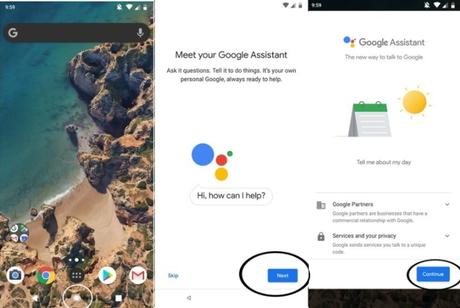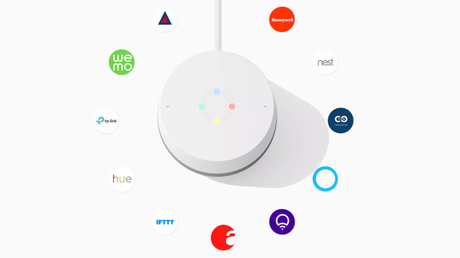How to use google assistant with voice. Google Assistant is an AI-powered virtual assistant that is available on a variety of devices, including smartphones, smart speakers, and smart displays. Here are some steps for using Google Assistant:
Set up Google Assistant:

If you haven’t already, Then you’ll need to set up G- Assistant on your device. This typically involves downloading the Assistant app or enabling the feature in your device settings.
Wake up Google Assistant:
To use G- Assistant, you’ll need to wake it up by saying “Hey Google” or “OK Google.” This will activate the voice recognition feature and allow you to give voice commands.
Read more: How to Install Google Play on Windows 11
Give a voice command:
Once G-Assistant is awake, you can give a voice command by saying something like “What’s the weather like today?” or “Start a 20-minute timer.” Google Assistant will comprehend your instruction and respond or do the task you have asked.
Explore different features:
G-Assistant has a wide range of features that you can explore. Some examples include setting reminders, creating to-do lists, sending text messages, playing music, and controlling smart home devices. You can also ask Google Assistant questions, such as “What’s the capital of Spain?” or “How do I say ‘hello’ in French?”
Customize your settings:
You can customize your G-Assistant settings to better meet your needs. For example, you can choose your preferred language, adjust the voice settings, and link your Google account to enable personalized responses.
Overall, using G- Assistant is simple and intuitive, and it can help you save time and stay organized in a variety of ways.
How to use Google Assistant for productivity:
Further G-Assistant can help you stay organized and efficient in a variety of ways, from setting reminders and creating to-do lists to managing your calendar and even sending emails. A blog post on this topic could explore some of the most useful productivity features of G- Assistant and provide tips for using them effectively.
Google Assistant and smart home technology:
Although One of the most popular use cases for G- Assistant is controlling smart home devices like lights, thermostats, and speakers. A blog post on this topic could discuss the different types of smart home devices that work with Google Assistant, as well as the benefits and challenges of using voice commands to control your home.
The ethics of artificial intelligence and Google Assistant:
As an AI-powered virtual assistant, G- Assistant raises important ethical questions about privacy, data collection, and the role of technology in society. A blog post on this topic could explore some of these ethical concerns and offer perspectives on how we should approach the development and use of AI technology.
Google Assistant and language learning:
Did you know that G- Assistant can help you learn a new language? By practicing conversational skills with Google Assistant in a foreign language, you can improve your fluency and confidence. A blog post on this topic could explore how G-Assistant can be used as a language-learning tool and provide tips for getting the most out of this feature.
The future of Google Assistant:
Finally, a blog post on the future of G-Assistant could speculate on what new features and capabilities we can expect to see from this technology in the coming years. Will G- Assistant become even more intelligent and adaptable? Will it play a bigger role in our daily lives? These are questions worth exploring in a blog post.
Controlling smart home devices:
One of the most popular use cases for G- Assistant is controlling smart home devices. By connecting your smart home devices to Assistant, you can use voice commands to control lights, thermostats, speakers, and other devices.
Here’s how to control your home using Google Assistant:

Set up your smart home devices:
To control your smart home devices with Assistant, you’ll need to set them up and connect them to your Home app. Make sure your devices are compatible with G-Assistant and that you have the latest version of the Google Home app installed.
Link your devices to Google Assistant:
Although Once your smart home devices are set up, you can link them to G-Assistant. Open the Google Home app and tap the plus sign to add a new device. Follow the prompts to link your devices to Assistant.
Give voice commands:
Further, With your smart home devices linked to G-Assistant, you can use voice commands to control them. For example, you can say “Hey Google, turn off the living room lights” or “Hey Google, set the thermostat to 70 degrees.” G- The assistant will interpret your command and perform the requested action.
Read more: What does Google know about our privacy
Create routines:
Rather You can also create routines in the Google Home app to control multiple devices with a single voice command. For example, you can create a “goodnight” routine that turns off all the lights, locks the doors, and sets the thermostat to a comfortable temperature.
Customize your settings:
Although You can customize your G-Assistant settings to better meet your needs. For example, you can choose which devices to link to G-Assistant, adjust the device names, and create custom voice commands.
Controlling your smart home devices with Assistant is easy and convenient, and it can help you save time and stay comfortable in your home.
